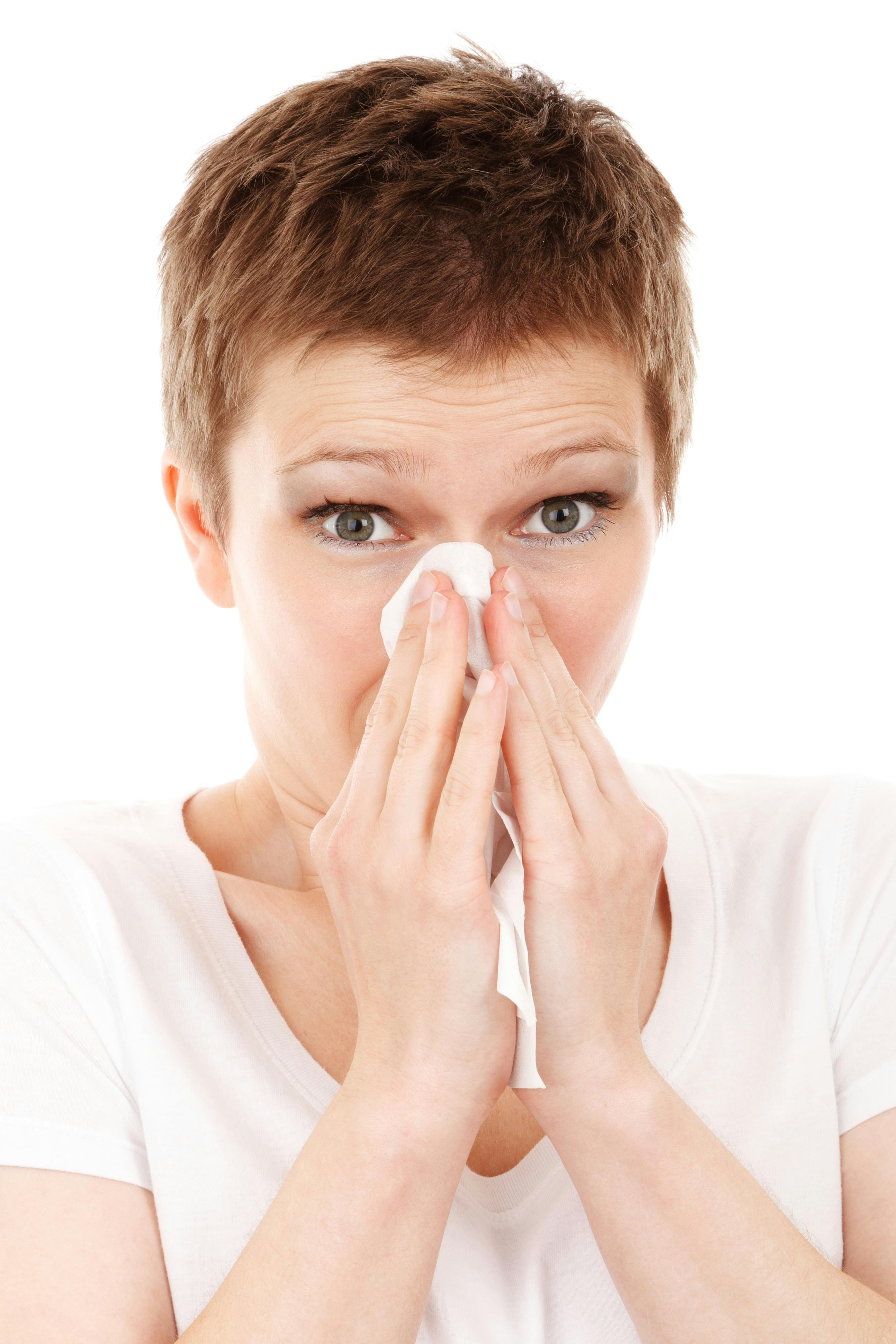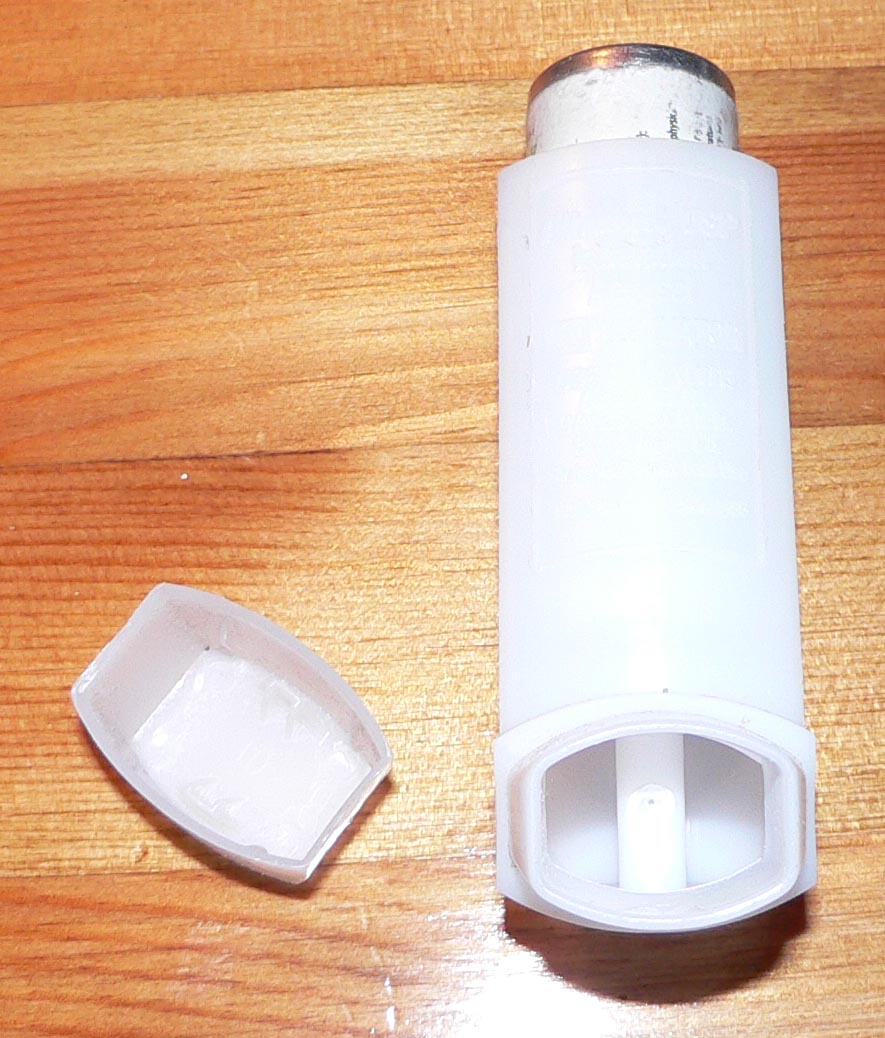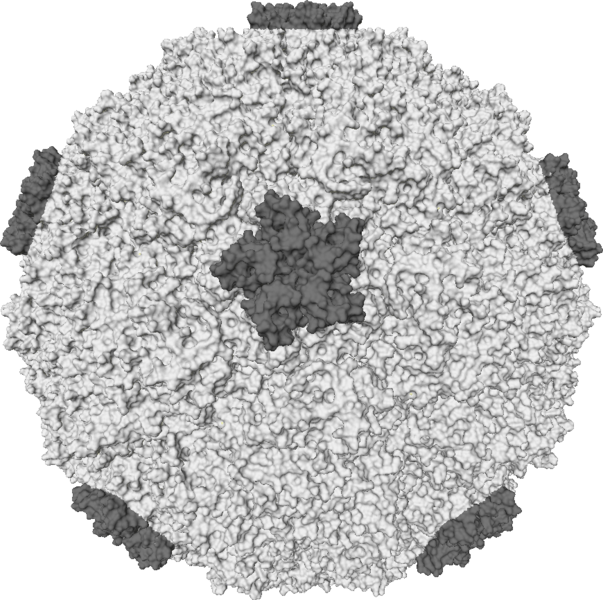If you have COPD, then you know that getting sick can wreak havoc on your daily life. Even common illnesses like the cold or flu can significantly increase your COPD symptoms and, in serious cases, even land you in the hospital.
That's why many doctors see the prevention of illnesses and infections as a primary treatment goal for COPD. Even the most minor illnesses can lead to exacerbations, which can be life-threatening or cause permanent worsening of lung function and COPD symptoms.
In this article, we'll show you how to avoid illnesses like the flu, pneumonia and the common cold if you have COPD. That way, your body can focus all of its energy and resources on keeping you and your lungs as healthy and strong as possible.
First, we'll explain how common viruses like the flu and common cold spread and how they can affect your COPD. Next, we'll introduce you to a variety of practical tips and techniques you can use to stay healthy and boost your immune system during the cold and flu season this year.
Even though COPD puts you more at risk for getting sick, there are many simple actions you can take in your daily life to stave off illnesses and infections. If you learn how to protect yourself and how to put those steps into action, you can significantly reduce your likelihood of getting sick and making your COPD worse.
Why Common Illnesses Are More Serious for COPD Patients

People with COPD have weakened immune systems, which makes them more likely to get sick if they get exposed to viruses or bacteria. It also makes COPD patients more likely to get secondary illnesses and infections, and more likely to experience serious complications when they get sick.
For instance, if you have COPD, getting a common cold makes you thirty times more likely to experience an exacerbation, which can cause life-threatening symptoms and hospitalization. Even when they don't cause exacerbations, illnesses take precious energy and resources away from your lungs and make it more difficult to breathe.
If you have COPD, any kind of illness or infection can weaken your lungs and cause you to have an acute exacerbation. However, illnesses that affect your respiratory system, like the flu, common cold, and pneumonia, are often the most threatening because of their symptoms and how quickly they can get worse.
Let's go through each of these sicknesses to better understand how they work and how they affect people with COPD.
The Common Cold
The common cold is caused by a virus, or, more precisely, a group of viruses that are constantly changing and adapting. Common cold viruses (known as Rhinoviruses) generally affect your nose and throat, causing a variety of respiratory symptoms like coughing, sneezing, and excess mucus production that make COPD symptoms much worse.
There are more than 200 types of cold viruses and they are all tricky and evasive. Rhinoviruses evolve very quickly, which is one of the reasons why the common cold is so difficult to treat and prevent. By the time researchers can identify and analyze a particular strain of cold virus, there's a completely new set of rhinoviruses getting passed around.
Because of this, there are no targeted vaccines or treatments that are effective for the common cold. Instead, simple prevention through proper hygeine is still the most effective way to protect yourself from contracting a rhinovirus.
Most people start showing cold symptoms 2-3 days after being exposed to a rhinovirus. Most common colds only last about a week to ten days, but they can sometimes last longer or leave lingering symptoms, like a persistent cough.
Symptoms of the Common Cold:
- Coughing
- Sneezing
- Sore throat
- General malaise (not feeling well)
- Runny nose or congestion
- Thickened mucus
- Mild headache
- Mild body aches
- Low-grade fever
If you think that you are coming down with a cold, consult your COPD treatment plan to figure out what to do next. Your doctor might recommend increasing how frequently you take certain medications or starting a course of corticosteroids or antibiotics to prevent secondary infections.
It's a good idea to call your doctor whenever you start to feel sick, and to check back in if your symptoms don't improve in a few days. If your symptoms start to get significantly worse, or you are experiencing an acute exacerbation, don't hesitate to talk to your doctor or seek medical attention.
The Flu

Influenza (also known as the flu) comes with many of the same symptoms as the common cold. However, unlike the common cold, which is generally very mild, the flu can make you severely sick. It is particularly dangerous for the young, old, and people with chronic diseases to get the flu, as it has the potential to cause serious complications and even death.
The flu is also a common cause of pneumonia and a variety of other secondary infections, including sinus infections and ear infections. People with COPD are particularly likely to develop pneumonia if they get the flu, which is why disease prevention is so important for COPD patients.
Most healthy adults who get the flu are able to recover relatively quickly and don't experience any serious complications. However, the flu can be much more serious and even deadly for people with chronic diseases like COPD, diabetes, and asthma. People over the age of 65 are also at a much higher risk of serious complications from the flu.
Telling the flu apart from the common cold can be tricky, which is why you should always call your doctor if you feel sick during the flu season. Your doctor can give you a test to see if you have the flu and determine how to treat you based on the results.
Common Symptoms of the Flu:
- Fever
- Chills
- Cough
- Runny nose or congestion
- Headaches
- Body aches
- Fatigue
- Sore throat
During flu season, you should take extra precautions and monitor your health more carefully. Take any respiratory or flu-like symptoms very seriously, and call your doctor earlier when you start feeling sick.
If you think you are starting to get the flu, you should follow the appropriate treatment plan recommended by your doctor and talk to your doctor immediately. There are certain medications, like Tamiflu, that can significantly reduce the length and severity of the flu if taken early enough.
Pneumonia
Another particularly dangerous illness for people with COPD is Pneumonia, a type of respiratory infection that causes inflammation in the air sacs in your lungs. Pneumonia happens when the air sacs (or alveoli) in your lungs fill up with fluid, leading to symptoms like coughing, fever, and breathing difficulties.
Pneumonia is more likely than the cold or flu to cause serious complications, especially for people with COPD. In severe cases, pneumonia can cause lung abscesses, fluid build-up in the lungs, respiratory failure, and death.
Pneumonia can be caused by viruses, bacteria, and even fungi, and most commonly occurs as a result of respiratory infections like the flu. Pneumonia is most common in people over the age of 65 and people with chronic respiratory conditions.
When you have COPD and experience respiratory symptoms on a regular basis, it can sometimes be difficult to tell the difference between a minor COPD flare-up and signs that you're getting sick. That's why it's important to remember and recognize the symptoms of the common cold, flu, and pneumonia.
Pneumonia tends to come with symptoms that are similar to the common cold or regular COPD symptoms. It's common to feel chest tightness, shortness of breath, and experience thicker, darker mucus in your airways.
Common Symptoms of Pneumonia:
- High fever
- Chills
- Worsened chest pain and tightness
- Headaches
- Body aches
- Fatigue
- Shaking
- Shortness of breath
- Rapid breathing
- Thick, dark-colored mucus
If you have cold or flu symptoms that last more than a week or if you believe you might have pneumonia, you need to call your doctor immediately. Pneumonia can often be diagnosed through a simple examination, chest x-ray, or by testing sputum that you cough up from your lungs.
If you have pneumonia, your doctor will determine whether it's caused by a virus, bacteria, or fungus, and start you on the appropriate medication. It's important to get proper medical treatment immediately and as early as possible in order to prevent serious and life-threatening complications.
How to Avoid Getting Sick

Now that you know how dangerous even mild illnesses can be, you're probably eager to know what you can do to protect yourself from getting sick. Fortunately, there's plenty you can do to reduce your chances of catching contagious illnesses, but unfortunately, no matter how careful you are, it's no guarantee.
Most respiratory illnesses, including the common cold and flu, are very contagious and can spread in many ways. You can catch a cold or flu simply by breathing in the virus from the air or from touching a contaminated doorknob.
That's why it's so important to know what to watch out for and how to protect yourself from the viruses and bacteria in your environment. Read ahead to learn how proper hygiene, vaccination, and other precautions you can take in public can reduce your chances of exposure to disease-causing germs lower your chances of getting sick to a minimum.
Wash Your Hands

Most of the things you touch, including food, people, animals, plants, and anything outdoors is a potential source of germs that could make you sick. That doesn't mean you should be afraid of everything, but it highlights why it's so important to wash your hands often.
Hand-washing is probably the most effective way to protect yourself from illnesses and infections. That's why the CDC calls it a “do-it-yourself vaccine” and uses the slogan, “Clean Hands Save Lives.”
Hand washing works because soap and water is generally enough to remove the vast majority of harmful viruses and bacteria that your hands pick up throughout the day. Washing your hands will not only keep you healthy, but it helps protect other people from getting sick as well.
How and When to Wash Your Hands

In general, you should wash your hands anytime they come into contact with anything that could harbor harmful bacteria or viruses. You should scrub your hands immediately after touching anything visibly dirty or unclean, and anytime you arrive home from an outing.
While you should never wash your hands obsessively, you should wash them often, especially when you're out in public. Here is a guide to some situations in which you should always wash your hands:
- When cooking: It's very important to always wash your hands frequently while prepping and cooking foods, especially after touching raw or cooked meats. Washing your hands in-between handling different ingredients and before you eat will prevent food cross-contamination and exposing yourself to harmful germs.
- After visiting a public place: Wash your hands whenever you get home from an outing. You risk exposure to harmful bacteria and viruses anytime you go in public or around other people; this includes going to the grocery store, a friend's house, the park, library, movie theater, or a restaurant.
- After using the bathroom: Always wash your hands thoroughly after using the bathroom, even in your own home. If you're in a public place, use a paper towel instead of your bare hands to touch the doorknob on your way out. You should also always wash your hands after changing a diaper.
- After touching surfaces in public: Anything that many people use or touch can potentially harbor dangerous viruses and bacteria. You should always wash your hands after touching public doorknobs, pens, counters, sink faucets, credit card machines, and more. You can also bring sanitizing wipes with you to wipe down certain items, like public phones or the handle on your grocery cart, before you use them.
- After shaking hands: Even if you are careful to wash your hands, the people you meet on a daily basis might not be so hygienic. Always wash your hands after meet-and-greets and anytime you touch another person's hand.
- After cleaning or handling trash: You're bound to get some nasty dirt and germs on your hands whenever you clean, gather up garbage around the house, or take out the trash. You should wash your hands after anytime you clean your house or touch any trash or garbage receptacles.
- When visiting a doctor's office or hospital: Contagious illnesses and infections are ever-present in hospitals and doctor's offices, which make them risky places for patients with compromised immune systems. Take care not to touch public handrails, arm rests, counters, and pens if possible, and wash your hands immediately after if you do. Bring your own pen to sign yourself in instead of using the public pen provided at the front desk.
- Before touching a newborn: Newborn babies don't have fully developed immune systems yet, and are thus especially susceptible to viruses and bacteria that you might have on your hands.
- Before you eat: Whenever you eat, you're using your hands or utensils to put things directly into your mouth. This puts you at risk of transferring germs from your hands or utensils to your food, then putting it into your body where it could make you sick. Whether you have COPD or not, everyone should wash their hands right before eating, without exception. Make it a habit in your household to have everyone wash up before meals.
How to Practice Proper Hand-Washing Technique

While hand-washing is a very effective way to prevent disease, it only works if you do it right. Unfortunately, most people don't know how to wash their hands properly and do a lazy or inadequate job of cleaning their hands.
How to Wash Your Hands Properly
- Wet: Run your hands under clean, running water from a faucet.
- Lather: Turn off the water and put soap on your hands. Then rub your hands together until it forms a frothy lather.
- Scrub: Use the lather to scrub your hands from top to bottom for about twenty seconds. Scrub your hands thoroughly, including your fingers, palms, wrists, and the backs of your hands. Don't forget to scrub between your fingers and under your fingernails. Use a nail brush if your hands are very dirty or there is dirt caught under your nails.
- Rinse: Turn on the tap again and rinse your hands under the clean, running water until all the soap is gone.
- Dry: Use a clean washcloth, towel, or paper towel to pat your hands dry. If you don't have a towel, shake the excess water off your hands and let them air dry.
Stay Away from Anti-Bacterial Soaps At All Costs
 |
| Image courtesy of Mike Mozart. |
As a final piece of hand-washing advice, you should stay away from antibacterial and antimicrobial soaps at all costs. They're not just ineffective, but potentially dangerous for both individual people and the environment.
While the term “anti-bacterial” in the name might make you think they work better, antibacterial soaps are actually less healthy for you than plain soaps that don't contain antibiotics. They don't clean your hands any better than regular soap and water, and they don't make you any less likely to get sick.
In fact, according to the FDA, antibacterial soaps don't offer any extra protection against illnesses and might even “give people a false sense of security.” Antibacterial soaps also encourage the growth of antibiotic-resistant bacteria, a problem that has grown along with popularity of antibacterial soaps.
Because of this, you should always check the label on any soap you buy and reject anything that says “antibacterial,” “antimicrobial,” or has a “drug facts” section on the label. Instead, opt for regular, plain soap and warm water whenever you wash your hands.
Don't Touch Your Face

While it helps to wash your hands every so often while you're out and about in a public place, there's no need to go overboard. You don't want to be a total germaphobe, and it's not possible or practical to wash your hands every single time you touch a doorknob or another potentially-contaminated surface.
Instead, simply keep your hands away from your face in-between hand washings. This will prevent you from accidentally inoculating yourself with whatever viruses and other pathogens your hands have picked up.
Germs on the surface of your skin can't infect you unless they find another way in; your tough skin is an effective barrier for keeping viruses and bacteria out of your body. But if you touch your face, germs on your hands can find their way into your eyes, nose, or mouth, where they can enter and infect your body.
But as long as you keep your hands away from your face, you're not likely to get sick from any pathogens your hands pick up. Just remember not to rub your eyes or nose, chew your nails, or let your fingers touch your tongue or lips.
Face-touching is a common thing that many people do without even realizing it, so it might take some concentrated effort to break the habit. You'll have to keep it in mind when you go out and get used to catching yourself in the act in order to reprogram absent-minded behaviors, like rubbing your face, that put you at risk.

Start the new habit at home and start training yourself to keep your hands at your sides and avoid touching your face unnecessarily. If you need to touch your eyes, blow your nose, or touch your face for any other reason, make sure you remember to wash your hands or use hand sanitizer first.
The other way that germs get into your body is through wounds and broken skin, which is why it's important to wash and cover any scratches, scrapes, burns, or other lesions you have. Otherwise, you could get a serious infection that weakens your immune system and causes you to get sick.
Use Hand Sanitizer
Hand sanitizer is a great option when you need to wash your hands but don't have access to a bathroom or sink. Although not quite as effective as hand-washing, hand sanitizers can kill the vast majority of viruses and bacteria on your skin and can be indispensable in a pinch when you're out in a public place.
But you have to look out for quality if you want a hand sanitizer that's safe and effective. Alcohol is the active ingredient in sanitizers that kills pathogens, but some don't contain a high enough percentage to reliably kill the bulk of the germs on your skin.
Always check the label and make sure that any hand sanitizer you buy contains at least 60 percent alcohol. Any less is hardly better than using plain water, and can even be dangerous for offering false protection.
You can keep a small bottle of hand sanitizer in your purse or pocket for anytime you need a quick, easy way to get rid of germs on your hands. It's useful for when you're out shopping or when you touch surfaces in high-traffic areas like doorknobs, hand rails, and credit card machines.
It is possible to have too much of a good thing, however, and you should only use hand sanitizer when you really need it. Excess hand-washing and hand-sanitizer use is bad for your skin, and using sanitizer too often can even breed super-strong, resistant bacteria. In moderation, hand sanitizer can keep you healthy, but too much can hurt your immune system and actually make you more likely to get sick.
Avoid Large Crowds

Lots of fun events and activities involve being around hundreds or thousands of other people. This includes most public events like parades, conventions, and holiday festivals. Unfortunately, cramming lots of people into small spaces comes with a lot of disease risks, which makes these situations especially dangerous for people with COPD.
While crowded, public events can be fun to attend, patients with compromised immune systems should avoid them during cold and flu season. No matter how many precautions you take, contagious illnesses can spread through crowds like wildfire, and the risk of picking up harmful germs from common areas increases significantly.
Here are some examples of crowded places you should try to stay away from during cold and flu season:
- Large festivals and events
- Sporting events
- Concert halls
- Convention centers and other entertainment venues
- Places with lots of children, including preschools, grade schools, and day cares
- Busy shopping malls
- Busy college campuses

If you can, skip out on busy winter festivals and try to attend public events during other times of the year, when the risk for contagious illnesses is not so high. If you must go to a crowded event, take every precaution you can to reduce your exposure to public surfaces and airborne germs.
Here are some tips for protecting yourself in crowded places:
- Wear a surgical mask or a CDC-certified N95 respirator mask to protect yourself from breathing in airborne viruses and bacteria. Studies show they can reduce your chances of getting sick by up to eighty percent.
- Wash your hands frequently and bring hand sanitizer to use when you don't have access to a sink.
- Move away from people who appear to be sick or people who are coughing or sneezing.
- Take care not to touch your face, especially your eyes, nose, and mouth.
- Make sure you are up to date on your vaccinations, including vaccinations for influenza and pneumonia
Stay Away from People Who are Sick

It's a difficult thing to do, but sometimes you just have to say “no” and cancel plans when someone is sick. Even if you or someone who is sick feels well enough to go out, it puts other people around you at risk of catching the illness as well.
If you have COPD, you are more prone to contagious illnesses and you should be especially careful around family members and friends who fall ill. You should avoid being in the same room or house with them at all costs, and avoid common surfaces that they could infect like doorknobs, handrails, and couches.
If someone you know has been sick recently, don't spend time around them until their symptoms have completely improved. Many illnesses remain contagious for some time, any any coughing, sneezing, or nose-blowing can quickly spread the sickness to others.
Get Vaccinated

Vaccines boost your immune system against specific illnesses and significantly reduce your chance of getting sick. Even if you do get sick, having been vaccinated can reduce your likelihood of experiencing serious health complications.
While you can't get vaccinated for the common cold, you can get vaccines to protect yourself from two of the most common and dangerous illnesses for people with COPD: influenza and pneumonia.
The CDC recommends that everyone get a flu vaccination once every year. People with compromised immune systems and chronic diseases like COPD benefit from the flu vaccine the most, as it can prevent exacerbations and life-threatening complications. You might want to ask for a specific type of flu shot, called the Trivalent shot with adjuvants, which is a stronger vaccine specifically for adults aged 65 and up.
You can get the flu vaccine at most doctor's offices or from most local pharmacies. Many workplaces and pharmacies offer discounted flu vaccines in the fall, which is the best time to get the vaccine. It takes up to three weeks for the influenza vaccine to be effective, so you'll have to get it before flu season starts for it to be the most effective.
Despite what you might hear from scare stories in the media, flu vaccines are actually very safe and effective. While it is still possible to get the flu after being vaccinated, it reduces your chances of catching this deadly disease by sixty percent and reduces your risk of hospitalization by up to eighty percent.
Doctors also recommend the pneumococcal vaccine, which protects against 23 types of bacterial pneumonia. Most people receive this vaccine as children, but another dose is recommended for people over the age of 65 and people who have certain medical conditions like COPD.
Talk to your doctor about getting the pneumococcal vaccine if you haven't had once since you were a child. He can tell you whether it's appropriate for you based on your condition and administer the vaccine to you if needed.
Getting vaccinated could literally save your life, so make sure you keep your vaccinations up to date. If you aren't sure if you need a vaccination, talk to your doctor about what vaccinations you might need.
Keep Your Immune System Healthy

Even if you wash your hands often and get vaccinations, you still need a healthy immune system to protect you from getting sick. That's where healthy lifestyle habits like exercise, diet, and sleep really matter.
When you eat healthy foods, stay hydrated, get adequate sleep, and get regular physical activity, it puts your body in much better shape to fight illnesses and infections. On the other hand, being underweight, malnourished, sedentary, or sleep-deprived strains your body's resources and makes you more likely to get sick.
If you smoke, quitting the habit is absolutely essential. Quitting will not only improve your respiratory health, but will strengthen your immune system and help keep you from getting sick, too.
Get Enough Sleep

You probably already know that getting enough sleep is important for keeping your mind and body in good shape. However, many people underestimate the role that a good night's sleep has on your immune system and your chances of getting sick.
When you don't get enough sleep or experience frequent sleep disruptions, you're more likely to get sick if you get exposed to a virus like the flu or common cold. Sleep can also affect how quickly you recover from being sick.
Studies have also found a strong link between quality of sleep and COPD exacerbations. Patients who get poor sleep are up to fifty percent more likely to experience an acute exacerbation compared to patients who get good sleep every night.
It's important to get a minimum of six to eight hours of sleep every night. It helps to go to sleep and wake up at the same time every day so that your body feels tired when it's time to go to bed.
Follow Your Treatment Plan

Don't let scary news reports about contagious illnesses and flu outbreaks get you flustered. You can't control everything or avoid all risk of getting sick; all you can do is follow your COPD treatment plan and take steps (like the ones on this list) in your personal life to avoid getting sick.
Patients who skip doses of medication, don't practice airway clearance techniques, or don't use their supplemental oxygen are much more likely to contract an illness like the cold or flu. That's why it's so important to follow your plan, keep your symptoms under control, and manage your COPD as your doctor recommends.
Focus on taking care of yourself and practicing good hygiene and healthy habits that help keep your immune system in top shape. Then, if you end up getting sick, you'll know that you've done everything you can, and your body will be stronger and more prepared to fight the illness.
You and your doctor should have a written COPD treatment plan to help you when you get sick or experience minor flare-ups and exacerbations. Always refer to this plan whenever you start to feel sick, that way you know what to do, what medications to take, and when you should call your doctor or seek further medical attention.
Getting sick can make your COPD symptoms worse and leave you down and out for awhile, but don't let it dishearten you. With rest, medication, and proper medical treatment, you can recover and get back to your regular schedule in time.
Stay Healthy This Cold & Flu Season

When you have COPD, taking steps to avoid sickness can literally save your life. The precautions you take now to reduce your risk for respiratory illnesses can help you live longer and avoid potentially life-threatening exacerbations.
Now that you've learned how proper hygiene and vaccination can protect you from illness and how to take precautions in public to avoid getting sick, you'll be able to rest easier this cold and flu season. With this knowledge and the techniques in this article, you should be able to calm your worries and keep yourself healthier when dangerous respiratory illnesses start making their rounds.
Avoiding illnesses is one of the best things you can do to protect your lungs and preserve your health with COPD, but it's not the end of the world if you get sick. It's important to do everything you can to stay healthy, but getting a cold or other illness can happen no matter how many precautions you take.
If you do get sick, stay calm, manage your symptoms according to your treatment plan, and continue practicing healthy habits that support a healthy body and immune system. As long as you practice good hygiene, follow your COPD treatment plan, and do your best to keep your body strong, you can avoid most illnesses and have the strength to fight off most germs that come your way.


.png)




